My name is Kateryna Yegorenkova, and I am from Kharkiv, Ukraine. I was born in 1976 in Russia, in the former USSR, and my roots are both Russian and Ukrainian. In 1986, my family moved to Kharkiv. After the collapse of the USSR and the independence of Ukraine in 1991, I got Ukrainian citizenship. Since then, I have identified myself as a citizen of Ukraine, this is my homeland.

In my TV studio, last live air before the war, February 23.
In my family, we have always spoken two languages, Russian and Ukrainian, and I speak both languages perfectly. I studied Ukrainian and Russian literature at a Russian-language school. Kharkiv has never known language conflicts, neither before the war in Donbas started in 2014, nor since. The Russian-speaking inhabitants of Kharkiv have never been threatened, attacked or harassed by the Ukrainian government.
Since 1998, I have been working as a news presenter at local TV and radio channels in Kharkiv. My passions are poetry and Argentine tango. I have published two books of poetry and I participated in tango festivals all over Europe, also as a tango DJ. My husband is a scientist and professor at Kharkiv University. We lived in a spacious apartment in the centre, together with my 90-year-old mother-in-law, my sister and my niece. Kharkiv is Ukraine’s second largest city and known as the city of fountains and sculptures, a city with a 350-year history and many architectural monuments of world importance such as the Derzhprom Building, which is mentioned in architecture textbooks as a vivid example of constructivism.
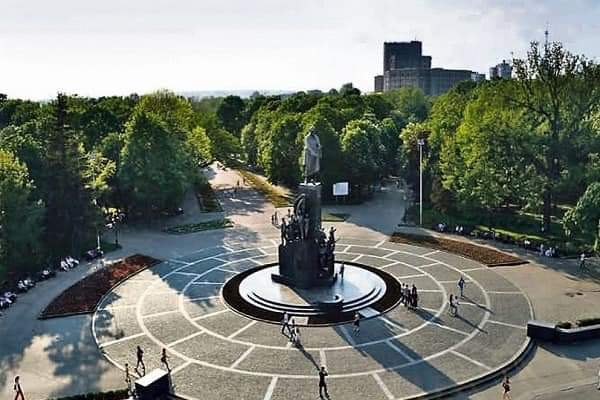
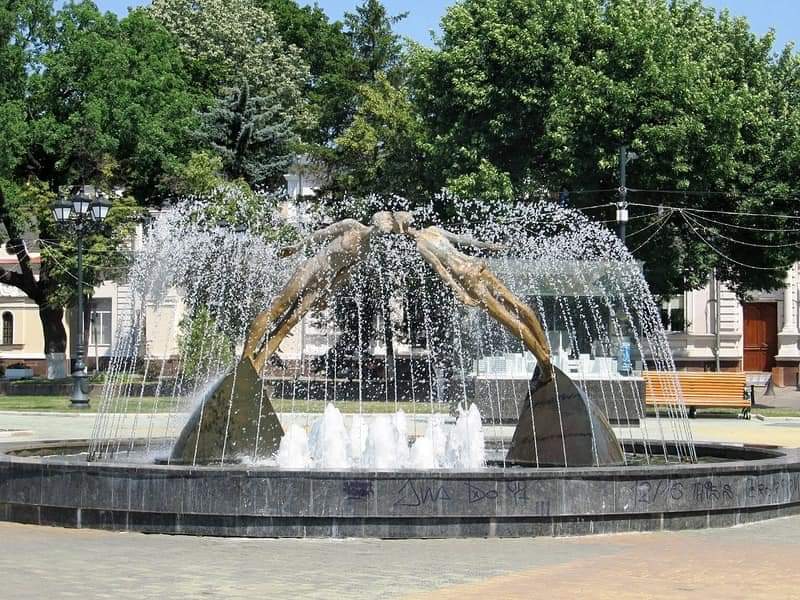

On the eve of the war on February 23, I did a live TV broadcast on a possible Russian invasion of Ukraine. At the last moment of the broadcast, I changed the standard text and said goodbye to my audience with the words “Holding the line!” None of us thought an invasion would actually take place. For some reason, I didn’t have the strength to go to tango training afterwards and went to bed unusually early.
At 5 am the next morning, I woke up from the sound of explosions. I knew this is not fireworks, but artillery salvos, but my brain refused to grasp the horrific reality. My husband said we should leave immediately, but I said no. There was little information, but it became clear that the Russians were shooting in the suburb of Chuguiv. Martial law was declared. My husband managed to fill up a full tank of petrol and bought some food, flour, salt, sugar, cereals, meat. We decided to spend the night in the basement of our house. Two families had already settled on the concrete floor, on blankets, rugs and in sleeping bags. We arranged for my mother-in-law to sleep on an old sofa. To the dull sounds of artillery shelling, we fell asleep at about 2 am.
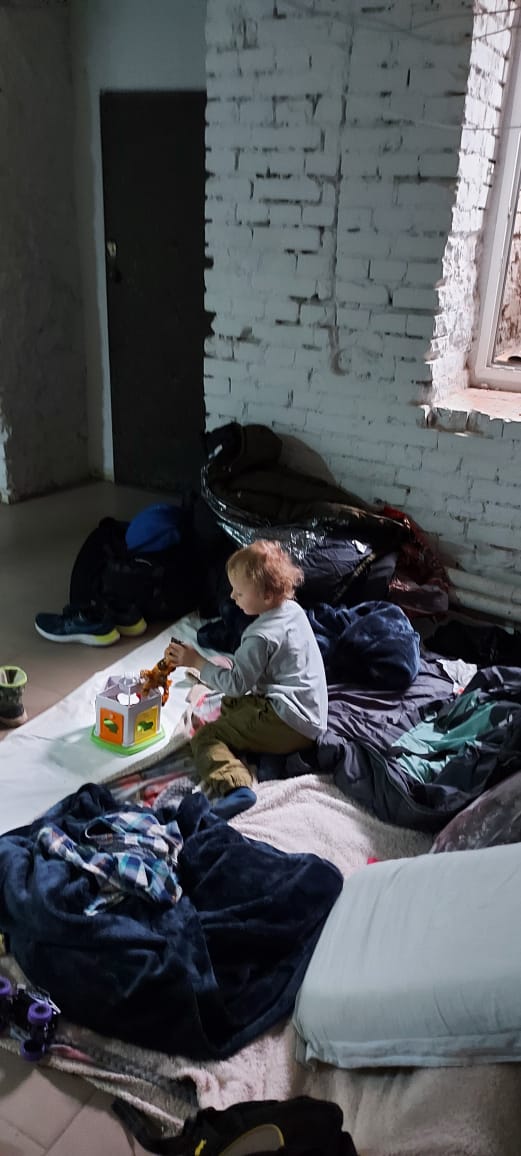
Basement in my house, February 26.
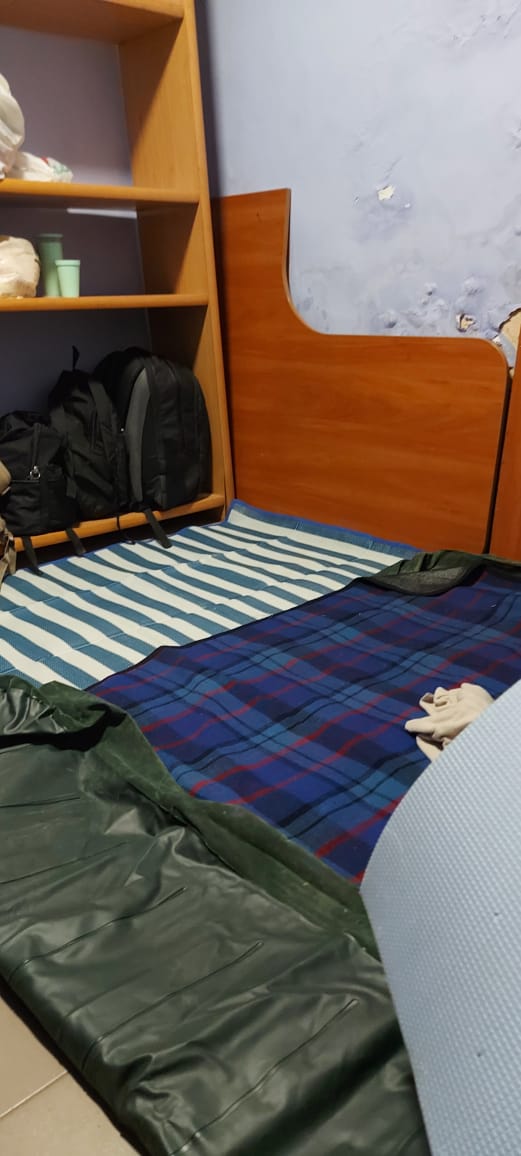
Our room in the basement, my family lived here for 6 days.
Since February 24, my family and I lived in the basement of our house, together with a hundred to two hundred people. A curfew was announced, to track down Russian sabotage and reconnaissance groups. As it turned out, saboteurs came to Kharkiv starting in December 2021, lived in rented apartments and waited for the start of the war in order to transmit data to the Russian troops on the location of military and infrastructure facilities.
Putin is taking revenge on Kharkiv because its predominantly Russian-speaking inhabitants did not support separatism in 2014 and categorically opposed the holding of an “independence referendum” and the creation of a “Kharkiv People’s Republic“, following the example of Donetsk and Lugansk in Donbas. Contrary to his expectations, we did not meet Russian troops with flowers and gratitude for the alleged “salvation from Ukrainian fascists”. This is a blatant and cynical lie that has nothing to do with Putin’s true intention: bring Ukraine back under the control of the “Russian Empire”, make it a “puppet republic”, deprive it of its statehood and enslave its inhabitants. No one needs the so-called “Russian peace” in Ukraine. We live in our own country and do not need Putin to save us from anything. The only thing we want is for Russian troops to leave immediately and get out of Ukraine forever.
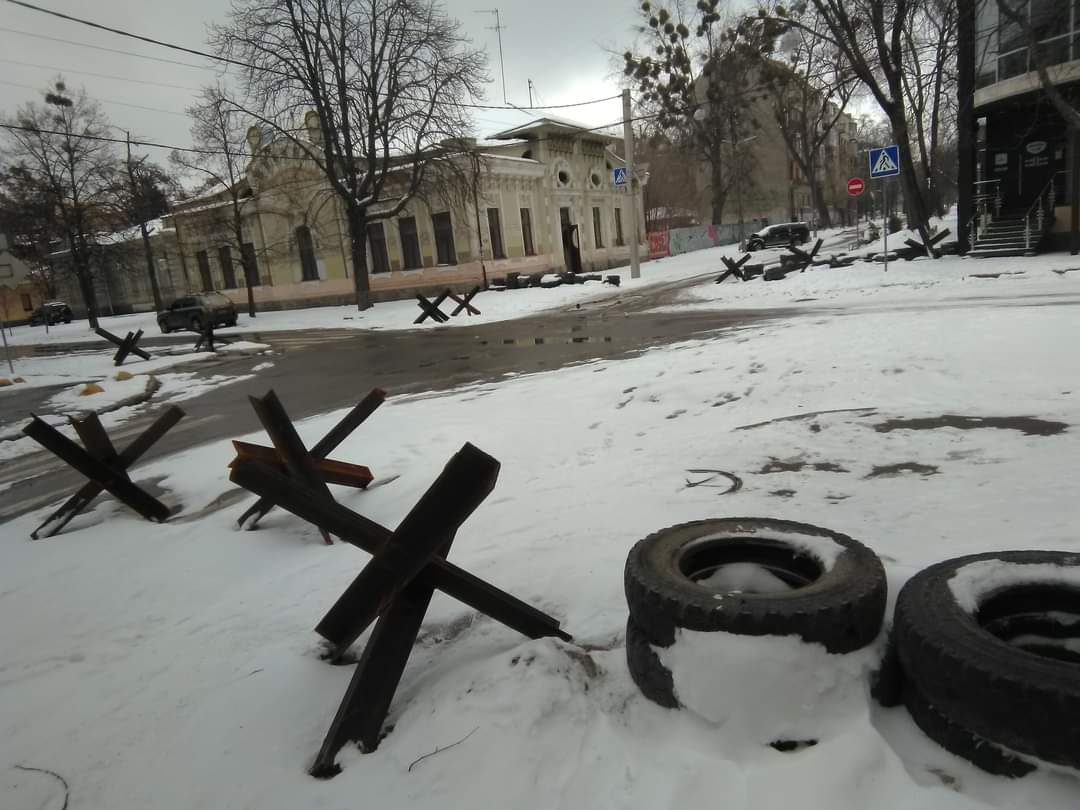
Kharkiv city centre, March 9.

Kharkiv metro station
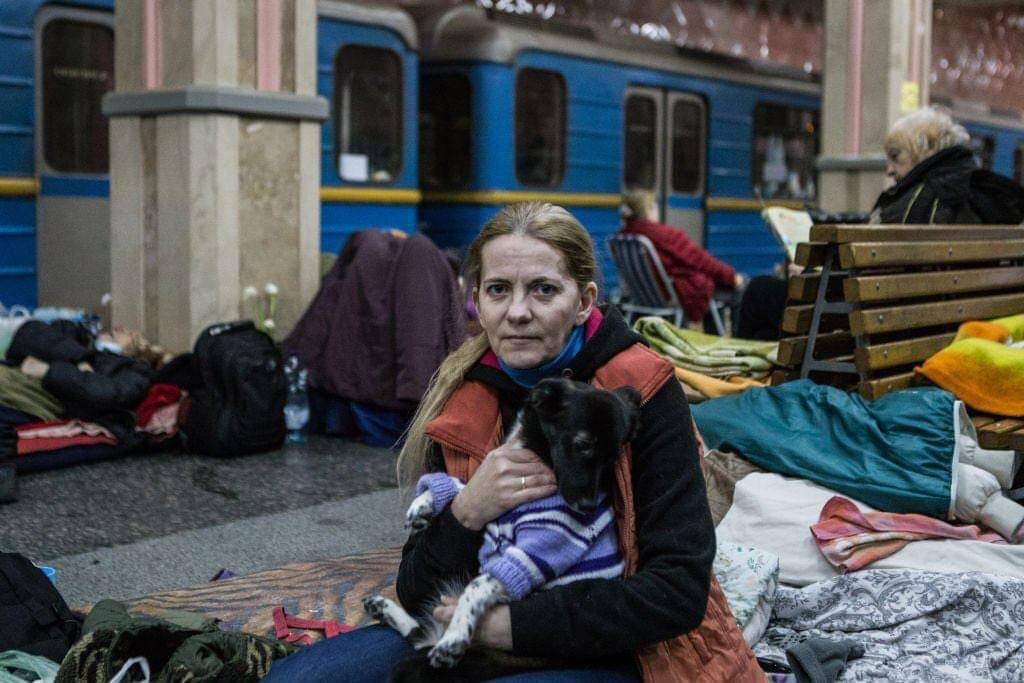
Kharkiv metro station, March 2nd.
Territorial defense units were formed in Kharkiv. They organized checkpoints and set up anti-tank barriers in the streets. Civilians drew strength and hope from the belief that an enemy had come to Ukraine and they needed to defend our country.
Artillery shelling in Kharkiv was brutal. Air strikes with 500-kg high-explosive bombs hit residential areas, hospitals, pharmacies, power plants. Destruction is massive. In the Polish daily Gazeta Wyborcza, a Russian-speaking refugee from Kharkiv offers a haunting description of what more and more people call “Our Stalingrad”. Footage from destroyed Kharkiv has gone viral.
My 90-year-old mother-in-law survived the German Nazi occupation of Kharkiv during World War II, when she was an 8-year-old child. She says even German Nazi troops did not destroy Kharkiv as furiously and mercilessly as the Russians do now.
Kharkiv city centre after the bombing on March 3rd, three blocks from my house.
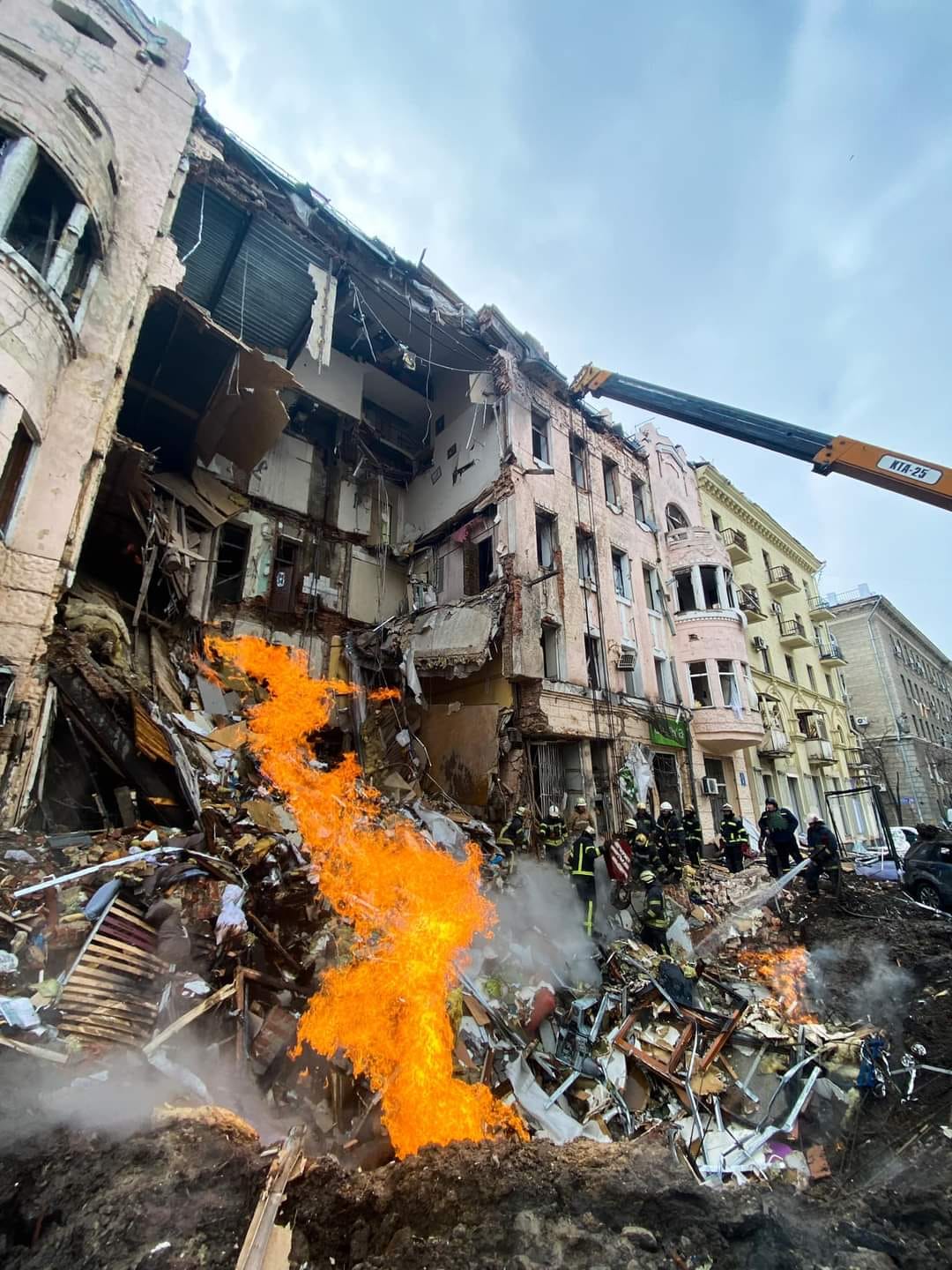
Svobody street, one block from my house, March 14. Credit Sashko Brynza.
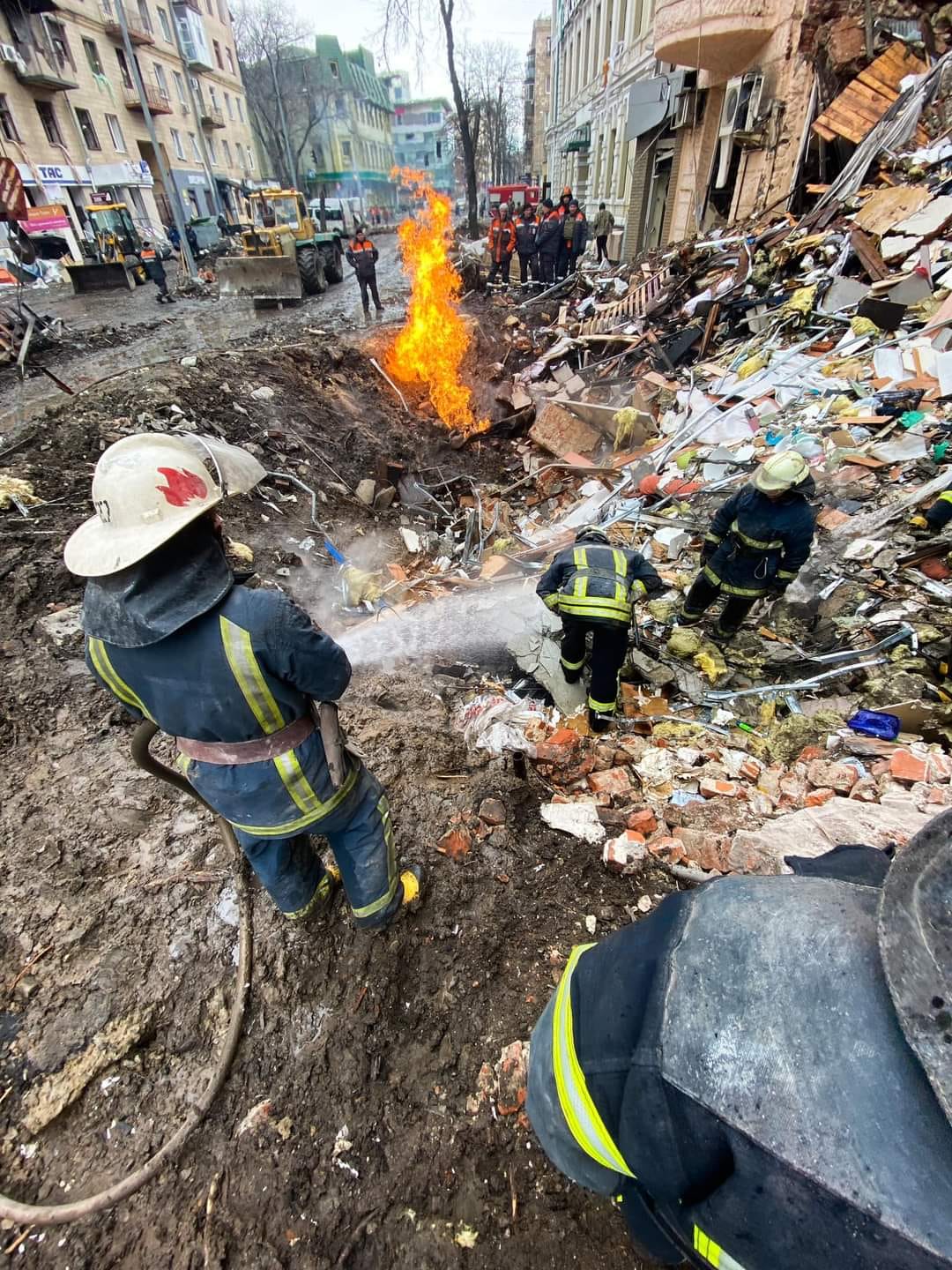
Credit Sashko Brynza
On March 1st, we made the decision to leave. We had climbed from the basement to our apartment to cook food. All of a sudden, a terrible explosion was heard, our walls were shaking, glass broke. It was very scary. The Russians had bombed the building of Kharkiv regional administration on Maydan Svobody, Freedom Square, the second largest square in Europe. Our apartment is only three blocks from Maydan Svobody and two blocks from the Ukraine Security Service.
The blast of Kharkiv regional administration building, March 1st.
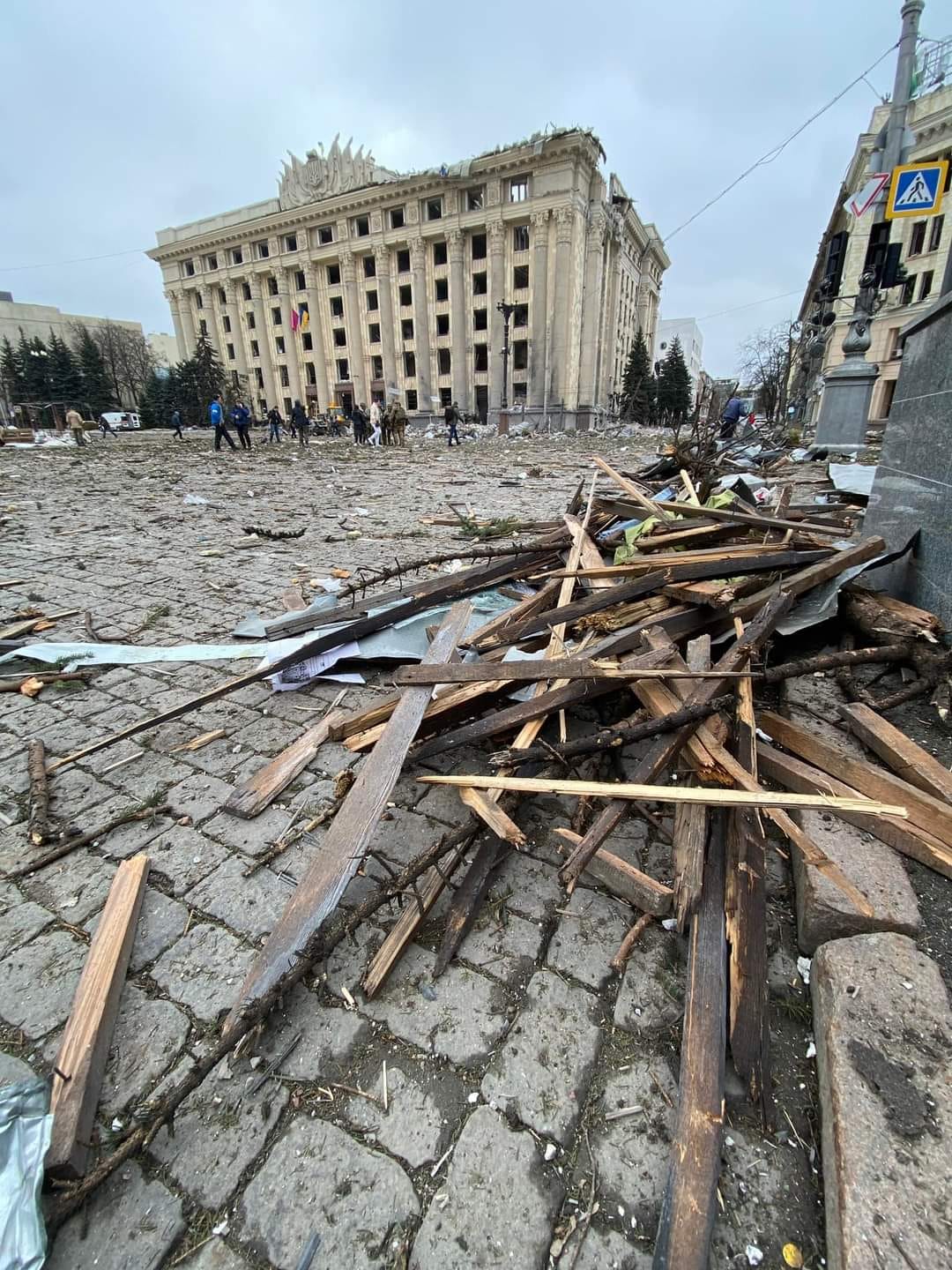
Maydan Svobody after the bombing on March 1st.
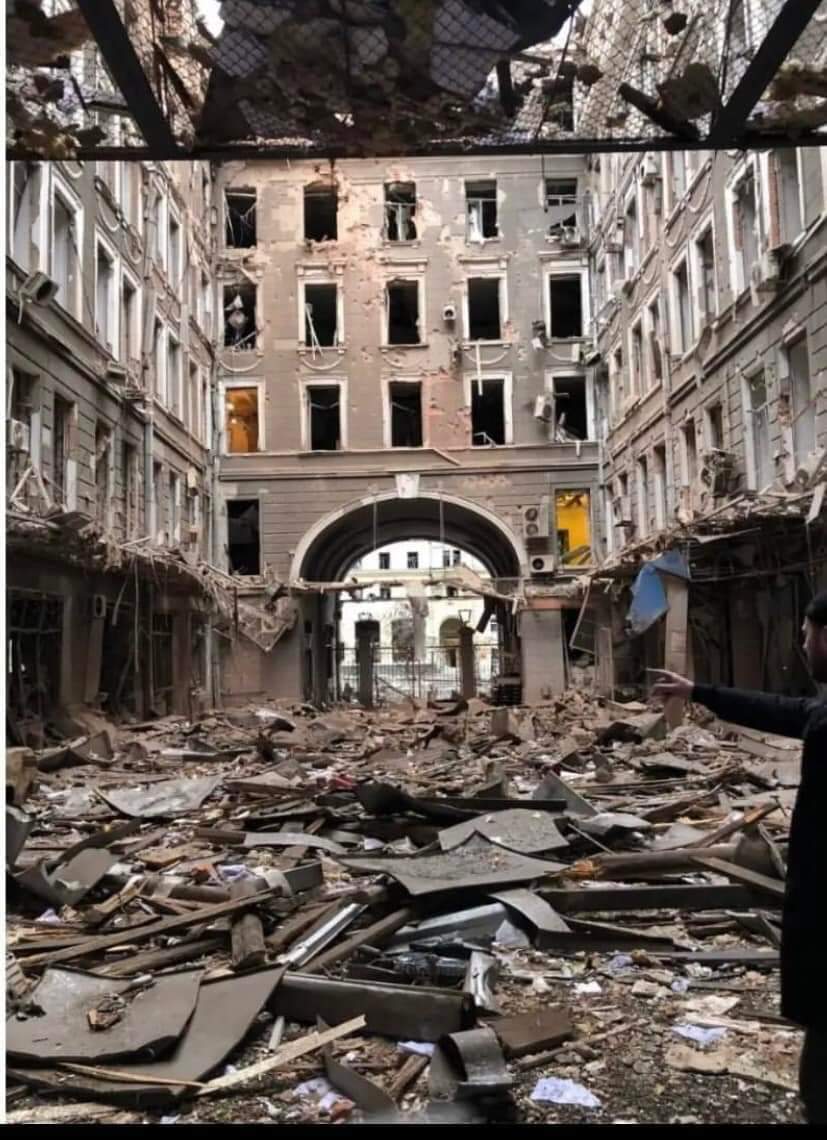
Kharkiv Palace of Trade, March 2nd.
We didn’t have time to pack properly, we only took some documents, money and food, got into the car and left Kharkiv with five of us, my husband and me, my old mother-in-law, my sister and my niece. The journey to Lviv that would take a day and a half in peacetime, took us four days. Thousands of cars and buses with refugees were driving west. We decided not to stay in Lviv because we were afraid that Putin would not stop at trying to conquer only the eastern part of the country and its capital. Our fears were not vain; on March 12, Russia began to bomb central and western Ukraine.
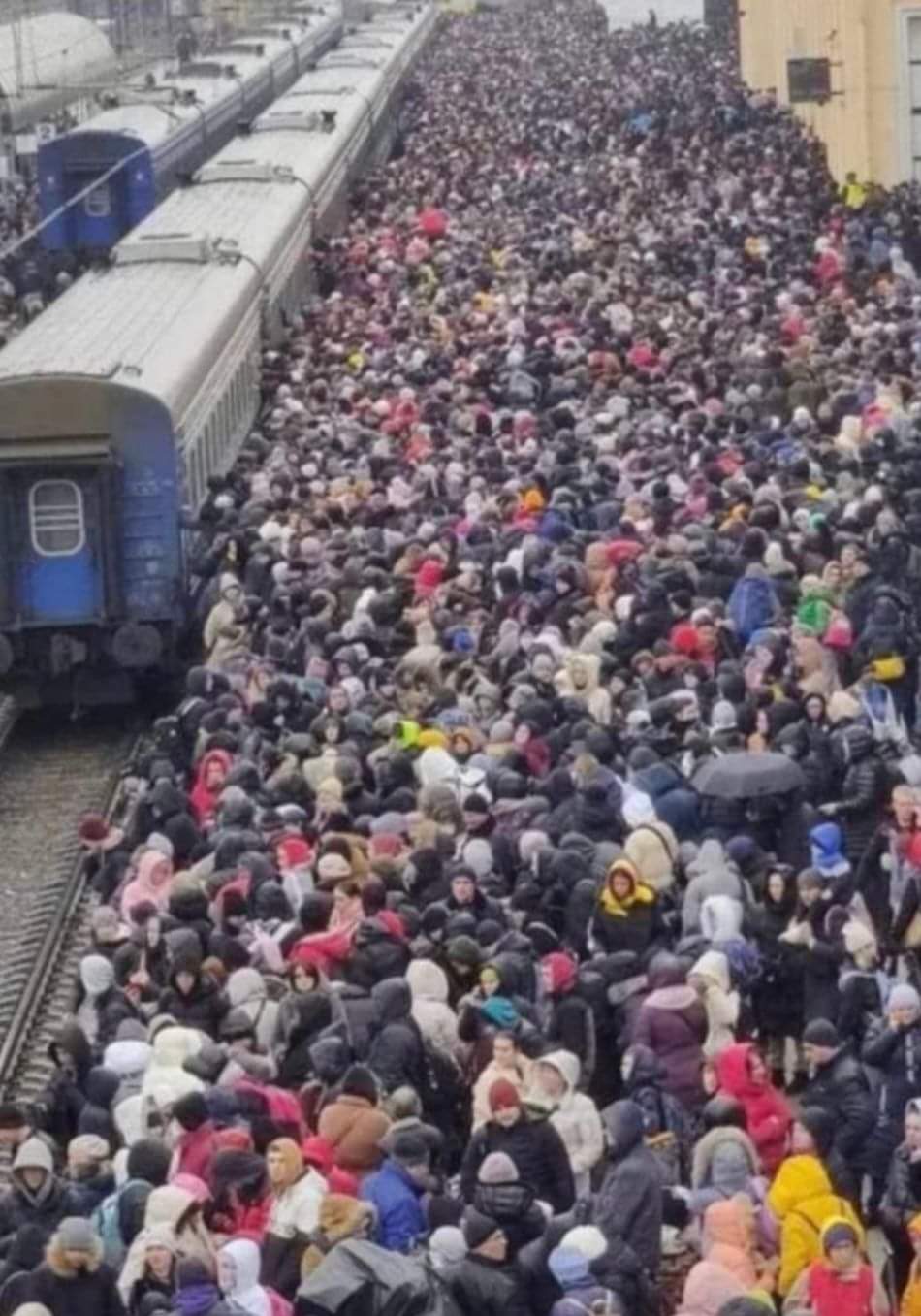
Kharkiv railway station, evacuation on March 3rd.
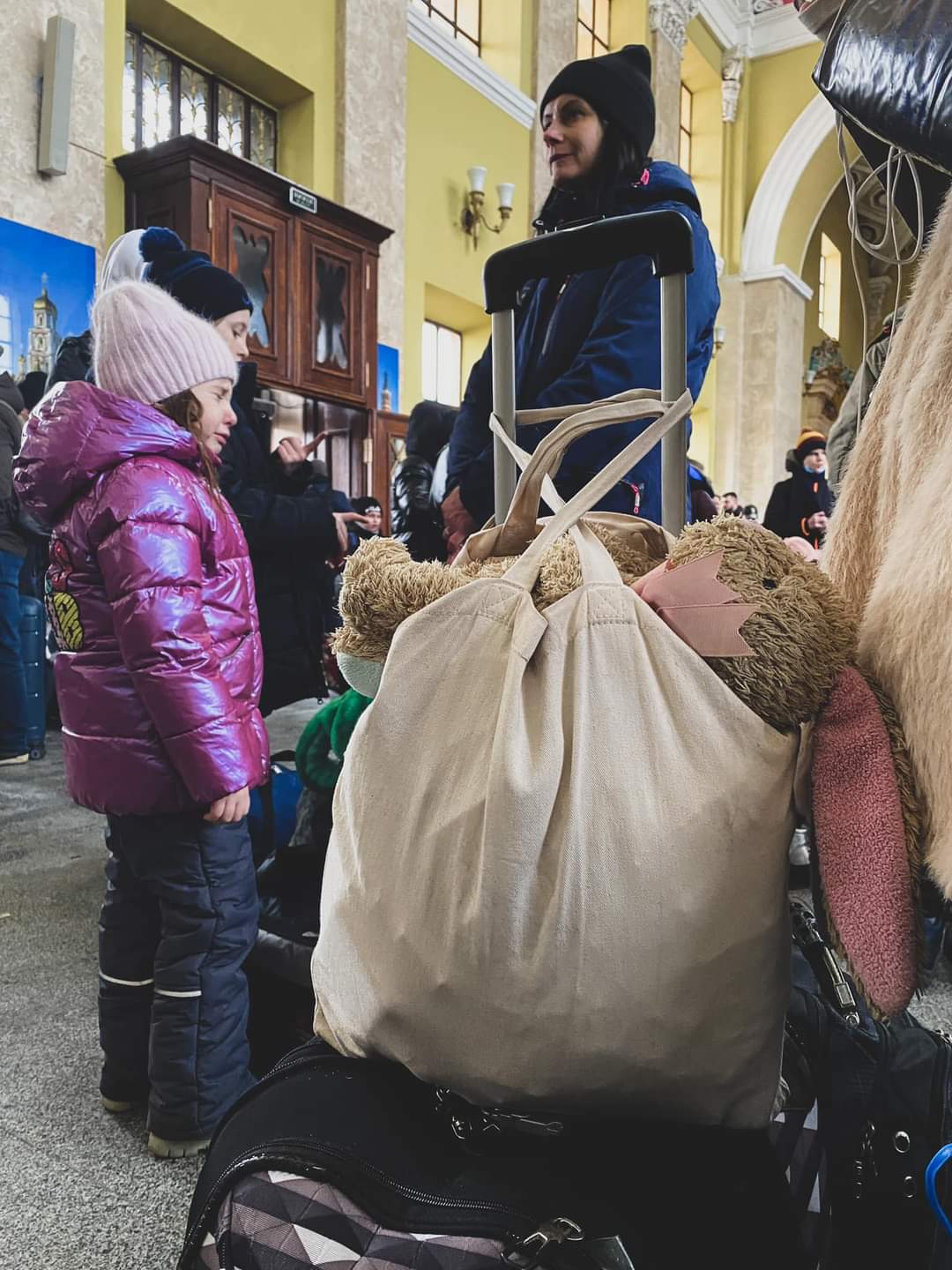
Kharkiv railway station, March
On March 7, we crossed the Polish border. We had forgotten to take my mother-in-law’s foreign passport, but the Polish side allowed her to enter. My husband was allowed to leave Ukraine because he is 66 and no longer subject to military conscription. At the border checkpoint, I saw a huge number of women crossing on foot, with small children in their arms and a backpack or suitcase. Polish volunteers offered food and tea, helped them to board buses and provided all necessary information.
We continued to Slovakia, because we wanted to go as far as possible, to the safest place possible. With the help of friends, we managed to find an apartment in Prešov which was for rent. This is where we are now. Presov authorities helped us with some money and food and we are in the process of obtaining temporary protection, which gives Ukrainians the right to stay in the EU and the right to work.
Thirty people continue to live in the basement of our house in Kharkiv. We keep in touch with them. Our house is still intact, but the Russians continue shelling the city and I do not know if they will survive.
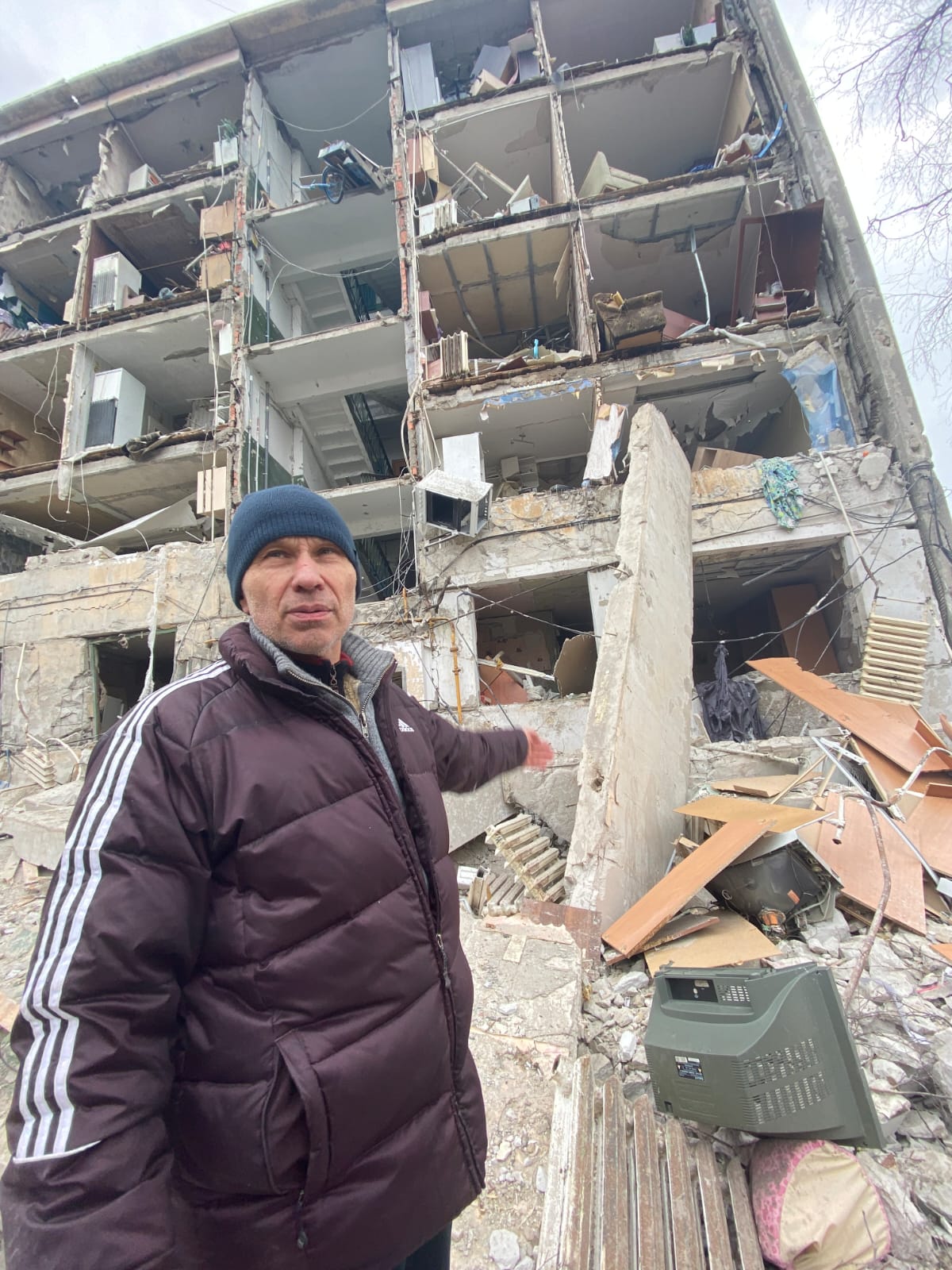
Kharkiv residential district Pavlove Pole, February 28. Credit Sashko Brynza
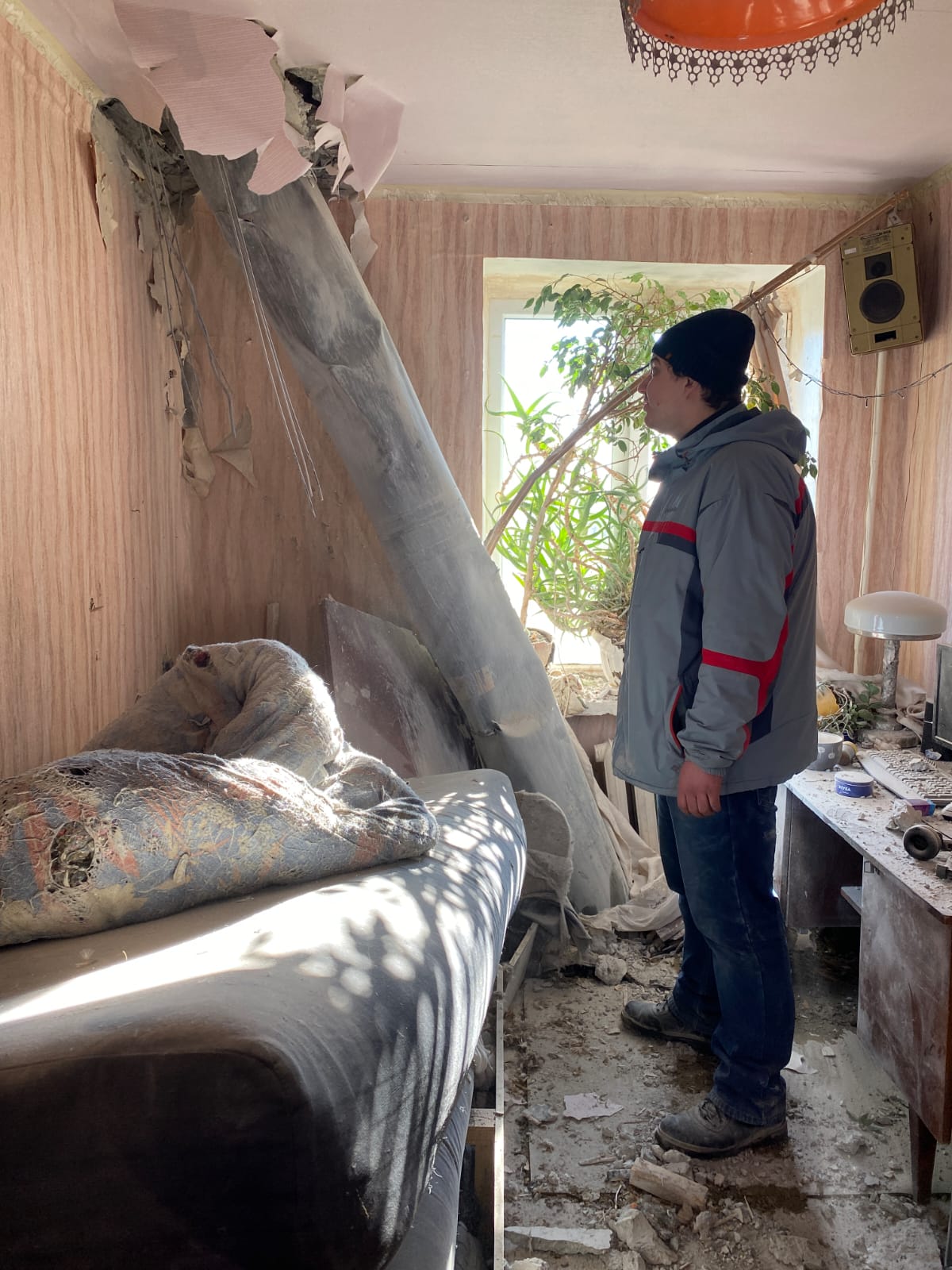
Kharkiv residential district Pyatyhatky, 30 km from the Russian border. Credit Sashko Brynza
I have nightmares. During the day, I startle at the slightest loud sound, such as a car passing under our window or a door being slammed. My only desire, like that of my family, is to go back home. We want to return and live in a free and independent Ukraine.
***
This testimony was written on the basis of an interview I conducted with Kateryna Yegorenkova after her escape from Kharkiv in March 2022.
Kateryna’s contacts:
FB page https://www.facebook.com/katerina.yegorenkova/
Email tango.ket@gmail.com
Whatsapp +380503642201
